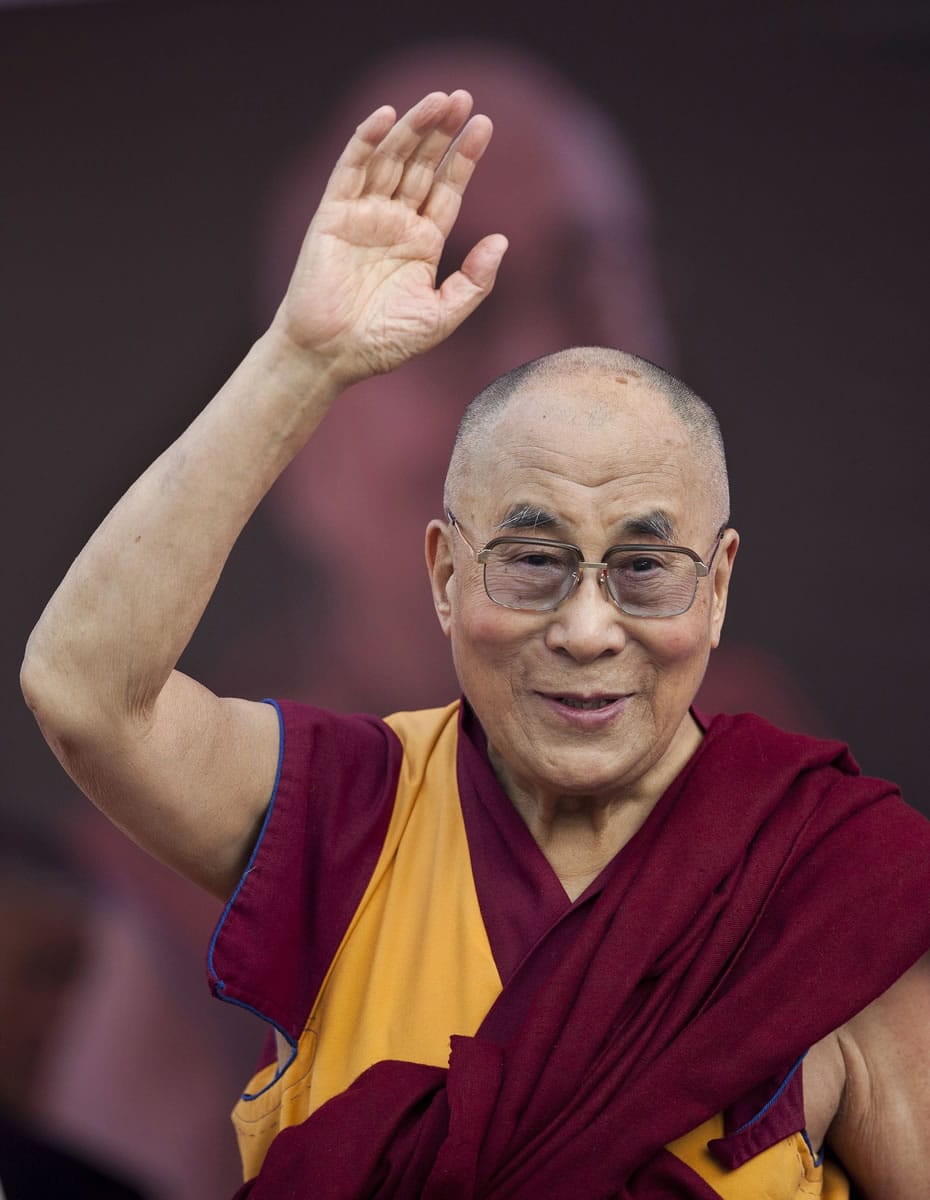BEIJING — China’s Communist Party is officially atheist, but that has not stopped it from making some impassioned claims on the afterlife.
Some of the strongest language at this week’s annual national congress has been reserved for the Dalai Lama, the exiled Tibetan Buddhist leader. The fury is over his claim in recent interviews that he may not be reincarnated, ending the Dalai Lama’s seven-century lineage. His comments undercut Beijing’s plans to pick a China-friendly successor to the Dalai Lama after he dies.
China’s stance: The Dalai Lama doesn’t control the next life. We do.
Tibet’s former governor, Padma Choling, told reporters this week in Beijing that the Dalai Lama wants “to contend with the Chinese central government for the right to reincarnate.”
“Can he decide when to cease to reincarnate? That’s impossible.” Padma said.
Zhu Weiqun, a senior government adviser, followed up in similarly caustic language, declaring Wednesday that “the reincarnation of the Dalai Lama has to be endorsed by the central government, not by any other sides.”
He blasted the Dalai Lama’s refusal to bend to Beijing’s political demands as a “dual betrayal” to China and his faith. He said the religious leader displayed a “very unserious, very disrespectful attitude” by suggesting he might be reincarnated as a foreigner, a woman or even a bee.
“Is there anyone on earth who takes this sort of attitude toward his own reincarnation?” asked Zhu.
China’s remarkable claims regarding the extent of its authority underscore the party’s grim determination to control a faith and a religious leader with enormous influence over Tibetans.
“It is meant to make the Dalai Lama wholly subordinate, in all matters, to the authority of the People’s Republic of China,” said Elliot Sperling, a professor at Indiana University and expert on China-Tibet relations.
There was no immediate comment on China’s latest statements from the self-declared Tibetan government in exile, established after the Dalai Lama fled to India in 1959 after an abortive uprising against Chinese rule.
Communist troops occupied Tibet by force beginning in 1949, but China claims it has had sovereignty over Tibet for more than seven centuries. Many Tibetans say Tibet was essentially independent for most of that time, paying no tribute or taxes, maintaining an army and waging wars, and operating their own legal and political systems.
Buddhists believe the soul is reincarnated after death in an eventual journey to nirvana, or liberation from the repeating cycle or birth and death. The Dalai Lama is considered an aspect of Buddha whose mission is to help others along the path to nirvana. Tibetan Buddhist tradition holds that a Dalai Lama can exercise some degree of control over how and when his soul is reincarnated.
China’s claim over the Dalai Lama’s recognition dates from an order by the Qing Dynasty emperor Qianlong in 1792 that disputes over the reincarnation be resolved by the drawing of candidates’ names held in a golden urn, a method intended to prevent the process being rigged.
In fact, the golden urn method soon fell into disuse and played no part in the recognition of the current Dalai Lama, the 14th. Beijing revived it in its recognition of the latest Panchen Lama, Tibetan Buddhism’s second-highest figure, in 1995. The Dalai Lama recognized someone else as the Panchen Lama; that candidate, a 6-year-old boy, quickly disappeared.
That was seen as just one more Chinese attack on Tibet’s religious institutions, culture and way of life, already eroded by Beijing’s heavy-handed rule and large-scale migration to the region by ethnic Han Chinese.
A leading advocacy group, the London-based International Campaign for Tibet, said attacks on the 79-year-old Dalai Lama could backfire because of enduring strong support for him inside and outside Tibet.
“They expose the atheistic Chinese leadership’s lack of legitimacy on this matter,” said Matteo Mecacci, the group’s president.
Decades of Tibetan resistance to Chinese rule have come to nothing and a recent wave of self-immolations by more than 130 Tibetans has signaled a new desperation. Some Tibetans question the Dalai Lama’s advocacy of a peaceful campaign to win genuine autonomy for the region under Chinese rule.
Dibyesh Anand, a Tibet expert and associate professor of international relations at London’s Westminster University, said China’s claims reveal “paranoia and jitteriness” about what will happen after the Dalai Lama dies.
Such statements may reflect efforts by the Chinese leadership to gain concessions from the Dalai Lama and his followers, said Robbie Barnett, a Tibet expert at New York’s Columbia University.
“But of course in this case the rhetoric is so overdone that it has comic overtones,” Barnett said.



